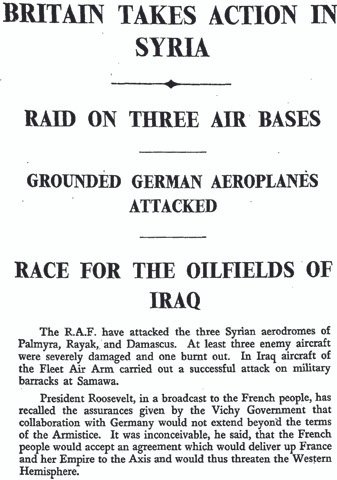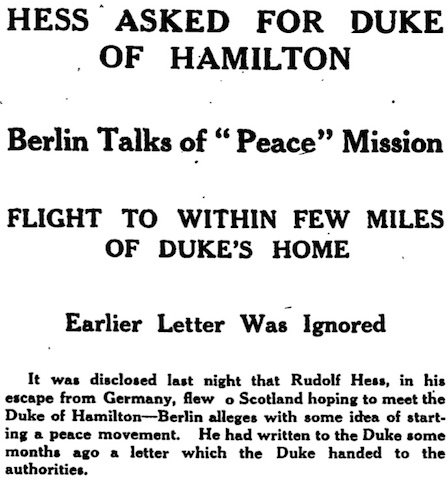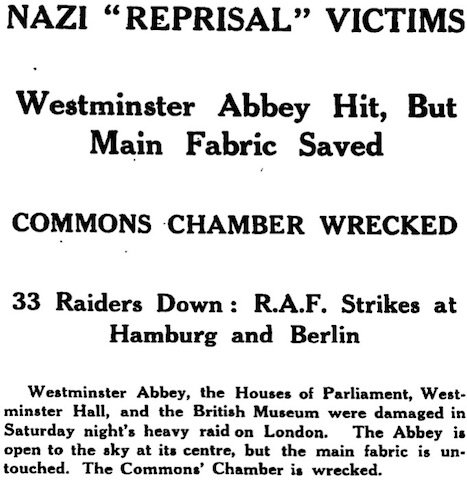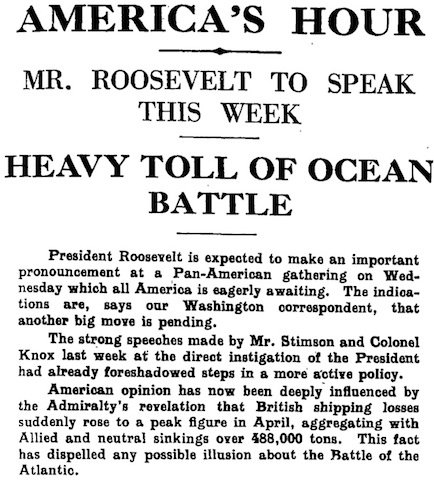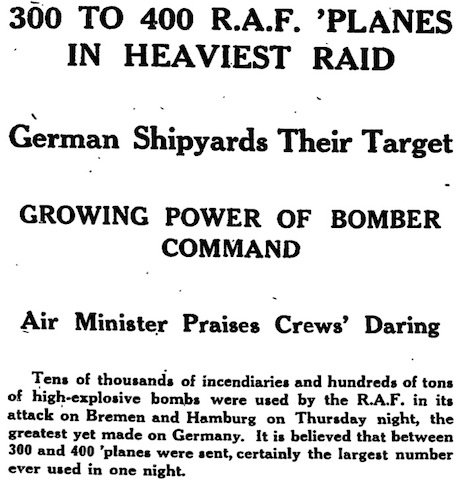
It's Sunday, which means the Observer, which today leads with the situation in the Middle East (5). Vichy has said that it doesn't consider the British bombing of its aerodromes in Syria to be 'acts of aggression' (though it's hard to see what else it could be). In any case there are many things which Vichy could do which would indirectly harm Britain, as listed by the Observer's diplomatic correspondent:
There is the question of the use by Germany of France's naval bases in the Mediterranean. There is the right of passage of German troops through Vichy France to Spain [...] And there is the German infiltration into French Morocco, a danger of which the far-sighted warnings of President Roosevelt shows him to be acutely conscious.
Vichy might also obstruct Britain in a more material sense: there is a report that '800 tons of arms and munitions from the French stores in Syria have already been sent to the Iraqi rebels at Bagdad'. But there are limits to Vichy's value to the German '"pincers" technique in the attack on the British position in the Middle East'. A naval correspondent notes that Germany can currently only ferry troops to Iraq by air, which is extremely limiting. If they want to move substantial numbers in, they will have to do so by sea. Here Britain holds all the cards. Not only does it have naval superiority in the eastern Mediterranean, but even considering that the Axis now controls Greece and the Italian Dodecanese, 'Cyprus lies athwart' the route from Rhodes to Syria, and 'Cyprus is capable of accommodating much larger air forces that in Malta', another British island fortress which is doing its best to interrupt Axis sea routes.
...continue reading

